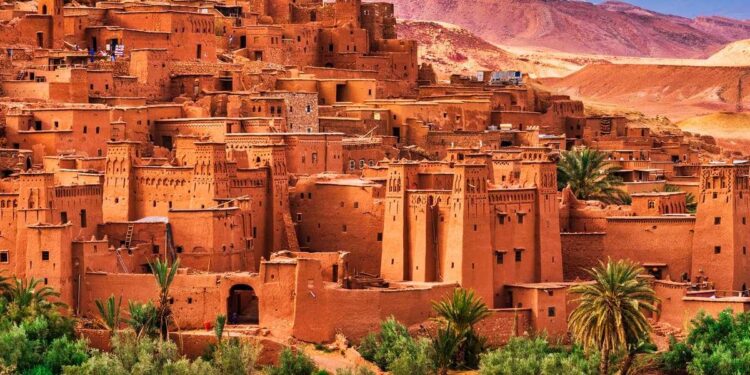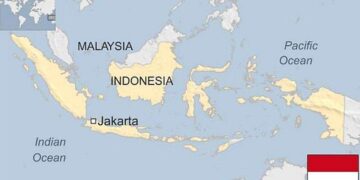UK Backs Morocco’s Autonomy Proposal for Western Sahara Amid Persistent Regional Disputes
In a notable diplomatic shift, the United Kingdom has officially endorsed Morocco’s plan to grant autonomy to Western Sahara, a territory long embroiled in conflict between Moroccan authorities and the Sahrawi independence movement. This endorsement was announced by UK Foreign Secretary David Lammy as part of ongoing efforts to resolve one of North Africa’s most enduring territorial disputes. The UK’s support arrives amid increasing international pressure to find a sustainable solution for the region, where decades of uncertainty have severely impacted local communities.
The decision signals potential changes in regional geopolitics and could pave the way for renewed dialogue among stakeholders. It also reflects London’s strategic interest in fostering stability across North Africa while balancing respect for Sahrawi self-determination with Morocco’s sovereignty claims.
Background: The Complex History Behind Western Sahara’s Conflict
The roots of the Western Sahara dispute trace back to Spain’s withdrawal from its colonial hold in 1975, which left a power vacuum contested by Morocco and the Polisario Front—a liberation movement representing Sahrawi aspirations for independence. Since then, intermittent clashes and political stalemates have persisted despite numerous attempts at mediation.
- Historical Legacy: Following decolonization, competing nationalist claims ignited prolonged tensions that remain unresolved today.
- International Mediation Efforts: The United Nations has repeatedly called for referendums on self-determination; however, these initiatives have yet to come to fruition due to disagreements over voter eligibility and political conditions.
- Regional Dynamics: Algeria continues its support for Sahrawi independence groups, complicating relations with Morocco and influencing broader Maghreb politics.
The UK’s Strategic Role: Implications of Supporting Moroccan Autonomy
The UK’s backing represents more than just diplomatic rhetoric—it is an active step toward reshaping alliances within North Africa. By endorsing Morocco’s autonomy framework as a viable path forward, London aims not only to strengthen bilateral ties but also assert itself as an influential mediator capable of steering complex geopolitical challenges toward peaceful outcomes.
This move aligns with Britain’s broader foreign policy goals focused on security cooperation and economic partnerships throughout the Mediterranean basin. Additionally, it counters growing influence from other global actors seeking footholds in this strategically important region—such as China and Russia—by promoting multilateral engagement under UN auspices.
- Enhancing Regional Stability: Support may reduce hostilities by encouraging compromise solutions acceptable to both parties involved.
- Diplomatic Strengthening: Reinforces UK-Morocco relations while potentially opening doors with neighboring countries like Algeria through inclusive dialogue efforts.
- Cultivating Peaceful Negotiations: Emphasizes diplomacy over confrontation as key mechanism toward resolving protracted conflicts peacefully.
A Holistic Framework: Recommendations Toward Sustainable Peacebuilding in Western Sahara
A comprehensive approach is essential if lasting peace is ever going to be achieved in Western Sahara. Beyond political agreements alone, integrating economic development programs alongside cultural exchange initiatives can foster mutual trust between Moroccan authorities and Sahrawi communities alike—helping heal decades-old divisions through shared progress rather than continued strife.
- Create Inclusive Dialogue Platforms: Facilitate regular communication channels where all voices—including marginalized groups—can participate meaningfully in discussions about their future governance structures.
- Economic Collaboration Projects: Launch joint ventures focusing on infrastructure improvement or resource management that benefit both populations equally; such projects can build interdependence conducive to peacebuilding efforts.
- Cultural Exchange Programs: Promote initiatives celebrating diverse heritage traditions within the region aimed at fostering empathy and reducing prejudices rooted in historical grievances.
| International Strategies | Anticipated Benefits |
|---|---|
| Mediated Third-Party Involvement | Neutral facilitators can help bridge divides during negotiations while ensuring transparency throughout peace processes. |
| Sustained Human Rights Oversight | Monitoring adherence protects civilians’ rights according international standards — crucial given past reports of abuses affecting vulnerable populations. |
Together with committed international partners supporting these measures alongside local leaderships’ willingness towards compromise will be vital components driving durable tranquility across this geopolitically sensitive area moving forward.
A Final Perspective: Navigating Future Prospects After UK’s Endorsement
The UK’s recent affirmation backing Morocco’s autonomy proposal marks an important juncture amidst ongoing complexities surrounding Western Sahara’s status quo. As Foreign Secretary David Lammy articulated, this stance seeks balanced recognition — honoring both Sahrawi aspirations while acknowledging Moroccan territorial integrity claims.
The global community will undoubtedly watch closely how this endorsement influences forthcoming negotiations involving all relevant actors—from regional governments like Algeria who maintain vested interests—to international bodies tasked with facilitating peaceful resolutions.
Ultimately, sustained attention , pragmatic diplomacy,and inclusive policies remain indispensable ingredients necessary if lasting harmony is ever realized within this historically volatile landscape.
Tags: Africaautonomy planconflict resolutionDavid LammyDiplomacygeopoliticsHuman rightsInternational RelationsLammyLondonMoroccoNewspolitical supportReutersSahrawi peopleself-determinationterritorial disputeUKUNWestern Sahara














